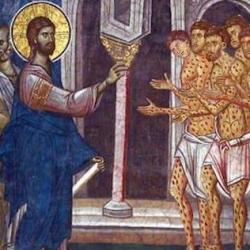In a review of Jacob Milgrom’s Anchor Bible Leviticus commentary, Jonathan Klawans provides a helpful summary of the achievement of Mary Douglas’s Purity and Danger:
Against especially Robertson Smith and Frazer, Douglas argued that avoidance behaviors could no longer be dismissed as something inherently or distinctly primitive. Douglas showed that our own notions of hygiene, for instance, are not necessarily any more rational or objective than the religious conceptions frequently dismissed as irrational. . . . Also against Frazer and Robertson Smith, Douglas argued that avoidance behaviors could no longer be treated in a ‘piecemeal’ fashion, on a one-by-one basis. Douglas argued persuasively that the avoidance rules of any single culture work together as a system to form a coherent definition of things permitted and prohibited, of things sacred and defiled. These rules, therefore, are to be treated systemically or structurally. . . . Third, Douglas argued that the ritual system once de- scribed must then be understood as a symbolic expression. . . . Thus, for instance, Douglas’s famous chapter on the abominations of Leviticus treats the Jewish dietary laws as a self-contained ritual system that expresses fundamental ideas about ancient Israelite cosmology. In contrast to Robertson Smith, Douglas looked for an explanation of Jewish dietary laws not by looking back at pre-Israelite dietary taboos, but rather by looking in Israel’s own account of God’s creation of the cosmos.
(Klawans, “Ritual Purity, Moral Purity, and Sacrifice in Jacob Milgrom’s Leviticus,” Religious Studies Review 21:9 [2003] 19-28.)















